COVID-19 office clusters raise health concerns in Indonesia
The COVID-19 pandemic has changed the way Indonesian office workers do their day-to-day tasks. Working from home for an extended period of time has definitely made us adapt to lots of new habits. But many companies have asked their employees to return to the office, and apart from the familiar buildings, there is nothing familiar about their new work situation.
Despite there being health and hygiene measures in place, office clusters are starting to raise health concerns in Indonesian cities.
The number of confirmed cases in Indonesia is still high
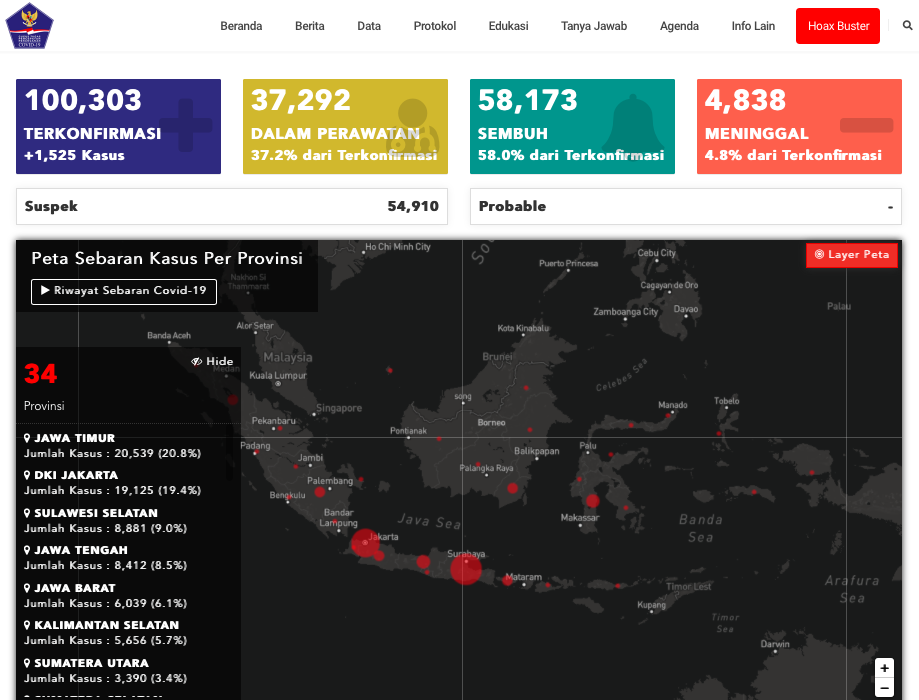 COVID-19 updates as of 26th July 2020
COVID-19 updates as of 26th July 2020
Image credit: Indonesian COVID-19 Task Force
As of 26th July 2020, Indonesia has reported a total of 100,303 COVID-19 cases, with 37,292 people still undergoing treatment.
The curve has yet to flatten, but with the economy slowly reopening and more people being tested, it is possible that the number of cases will increase.
Office clusters raise health concerns
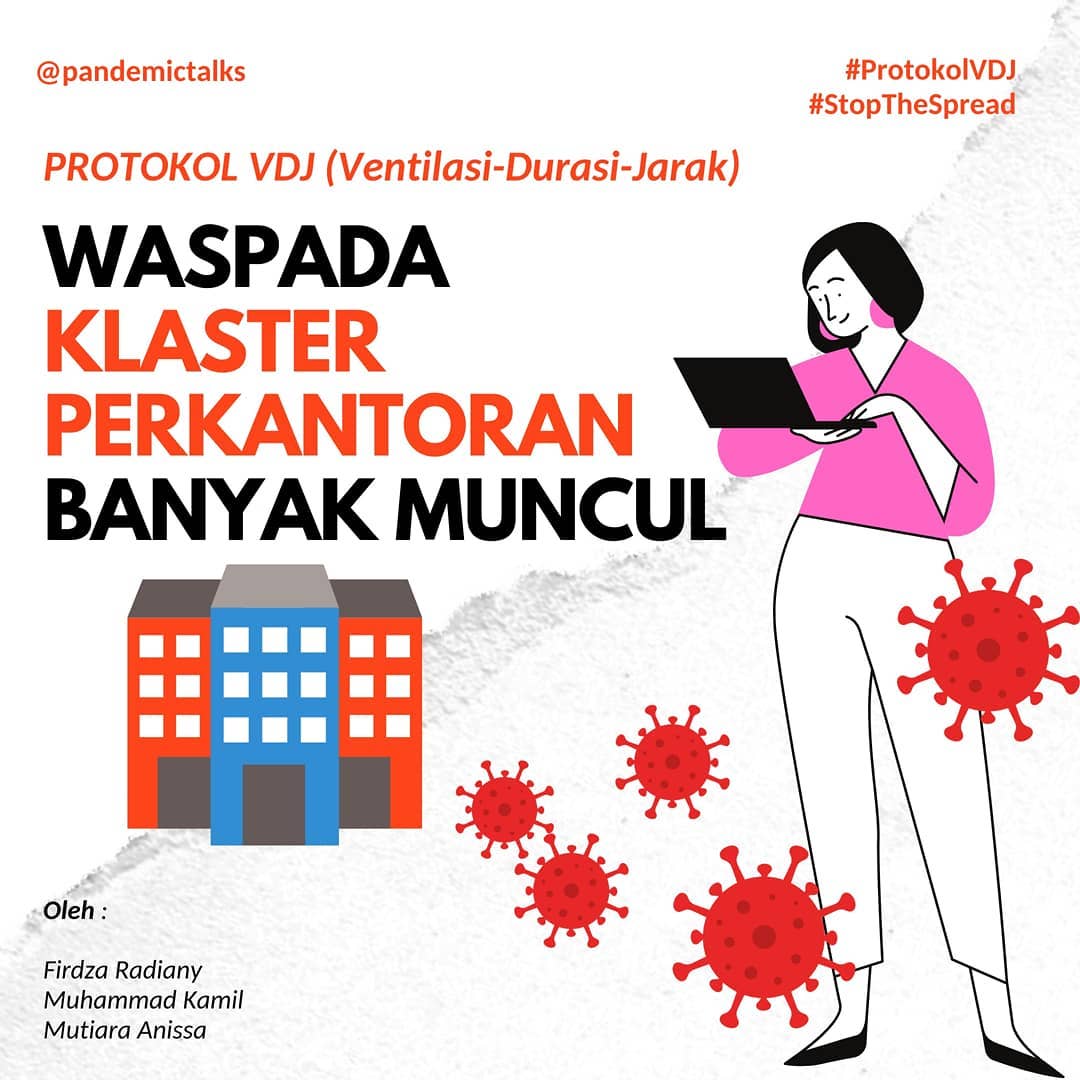 Image credit: @pandemictalks
Image credit: @pandemictalks
Last week, Pandemic Talks, a platform that aims to examine the scientific, economic, and social implications of COVID-19, posted a series of infographics that highlight the emergence of office clusters (klaster perkantoran) on Instagram.
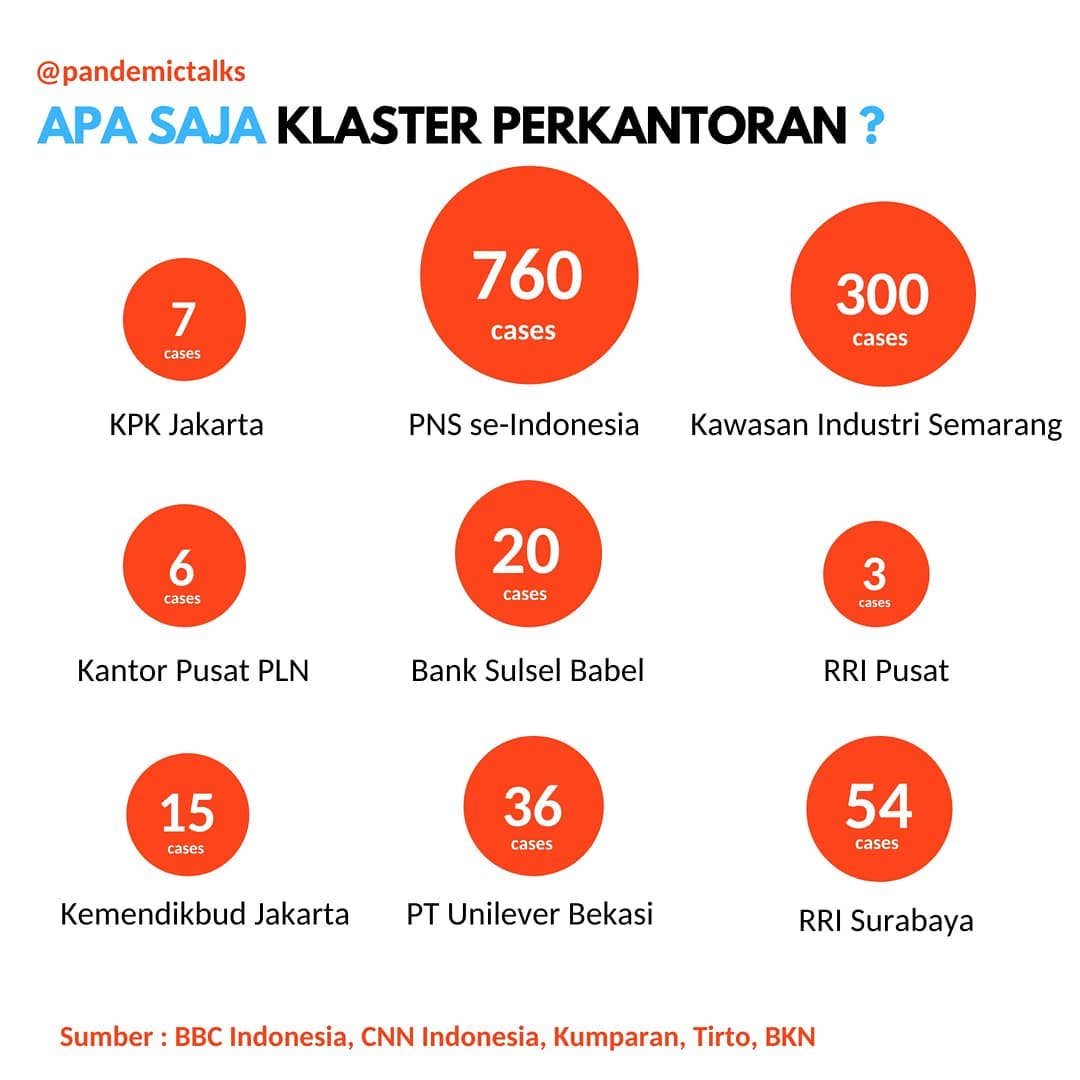 Image credit: @pandemictalks
Image credit: @pandemictalks
They gathered the data reported by various media outlets and presented their findings which show the number of reported cases across various industries – including government offices such as the Ministry of Education and Culture.
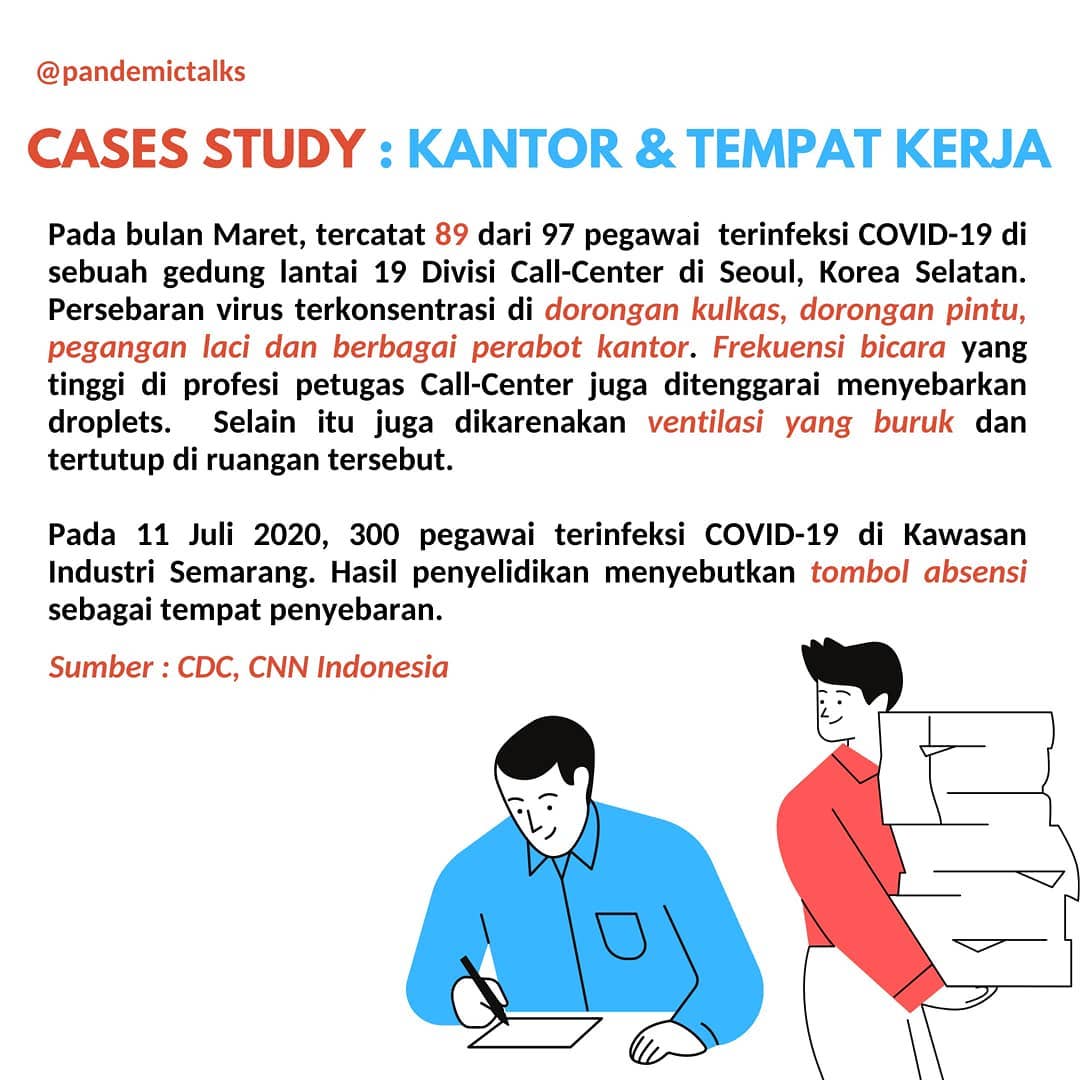 Image credit: @pandemictalks
Image credit: @pandemictalks
Quoting the US CDC and CNN Indonesia, @pandemictalks also points to the many ways the virus could be transmitted. In South Korea, for instance, the virus was often transmitted via door handles and office supplies.
In Indonesia, 300 employees in Semarang’s Industrial Zone tested positive for COVID-19 because of a building’s attendance button, which workers have to press to log in their working hours. In many workplaces, biometric fingerprint time-logging machines are common.
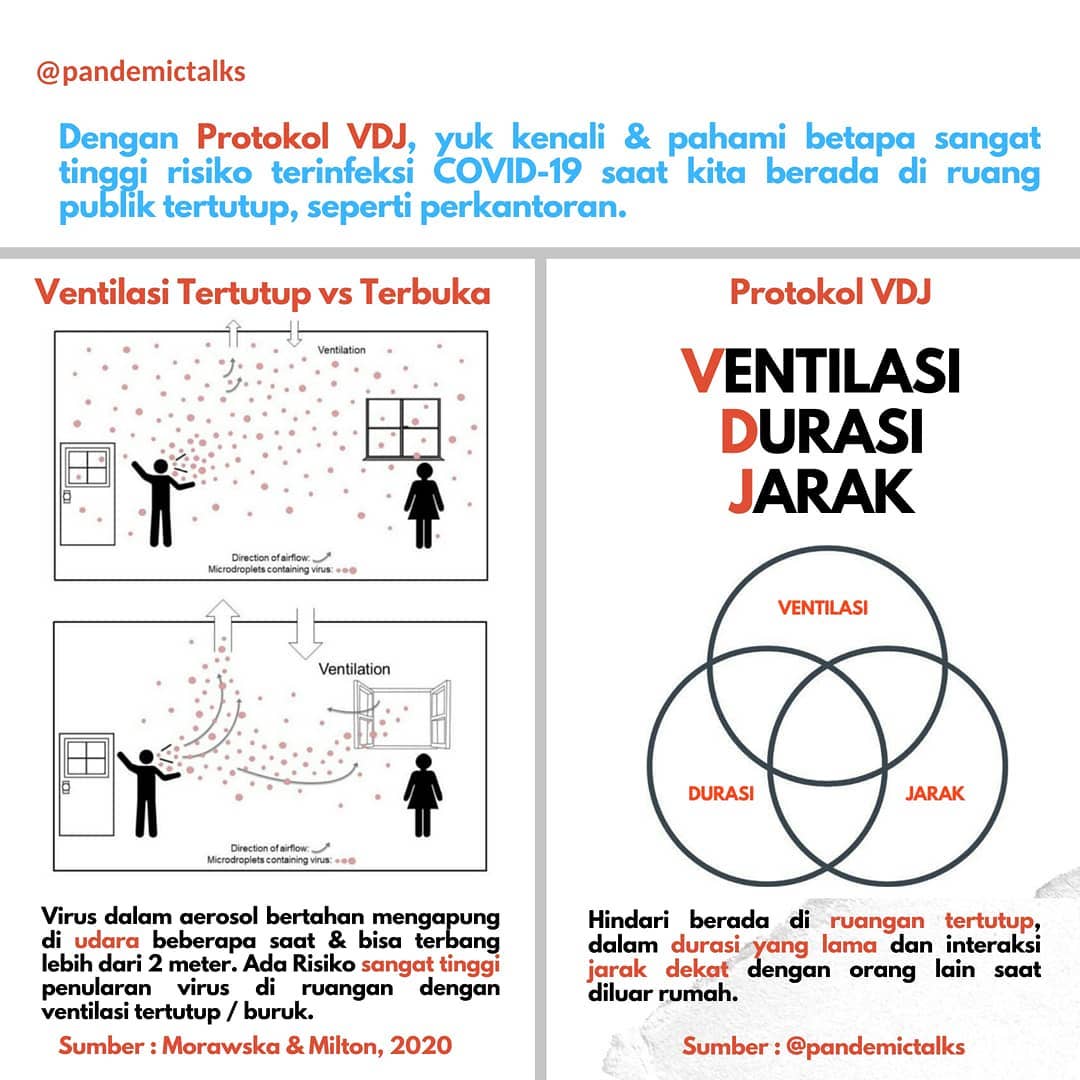 Image credit: @pandemictalks
Image credit: @pandemictalks
In another slide, VDJ, which stands for ventilasi (ventilation), durasi (duration), and jarak (distance) is highlighted.
Offices are enclosed spaces that often rely on air-conditioning – making them almost ideal environments for the virus to spread. So proper ventilation is needed among people who spend long hours in close proximity to each other to lower the risk of viral spread.
Other risks and possible solutions
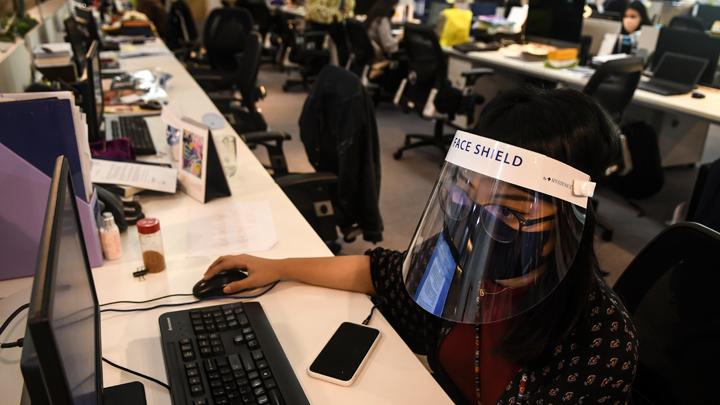 Image credit: Tempo.co
Image credit: Tempo.co
Dicky Budiman, an epidemiologist with Griffith University, further emphasizes the importance of social distancing. As reported by Kompas, he notes that ventilation is just one factor. Companies need to pay closer attention to the capacity of their buildings, so that inhabitants can keep a safe distance apart from each other. Building managers also need to be stricter in enforcing health protocols.
He proposes possible solutions that companies can implement, such as giving employees regular PCR testing and assigning them to shifts. It is equally important for employers to support employees who have been infected, and allow them ample time to recover at home before returning to work.
Wear a mask and wash your hands
Taking care of work responsibilities with the added pressure of worrying about COVID-19 is no easy feat. If you have to go to your office every once in a while, be sure to wear a mask – even during break times – and wash your hands as often as possible.
Let’s hope more companies will help facilitate a healthy environment for all workers.
Also read:
- COVID-19 vaccine Phase Three trials to begin in August
- Jakarta’s skies turn grey as the economy reopens
- Possible sanctions for COVID-19 protocol breakers
Cover image adapted from: Halodoc
Enjoying The Smart Local Indonesia? Follow us on Facebook, Instagram, and Twitter for more stories like this.






